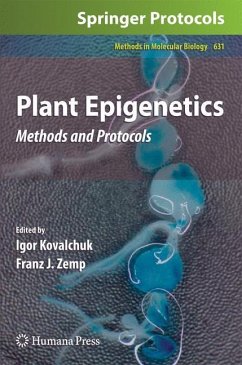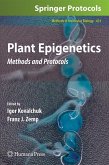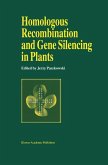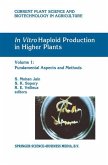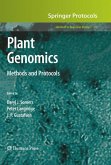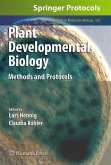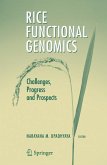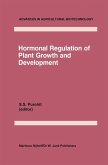The past fifteen years have witnessed major advances in epigenetics, one of the most popular and quickly evolving fields of modern science. In Plant Epigenetics: Methods and Protocols, expert researchers explore the most recent developments, examining in great detail the contribution of epigenetic regulation to cell function in plants. Chapters include a variety of protocols for studying the function of small non-coding RNAs, DNA methylation, and histone modifications in plants, often in different degrees of complexity. This volume describes bioinformatic approaches to the analysis of high-throughput data, such as bisulfite sequencing and Chip-on-chip assays. It features much-desired protocols for plant transgenesis and the analysis of genome stability, with a detailed discussion of their applications to epigenetic studies. Composed in the highly successful Methods in Molecular Biology(TM) series format, each chapter contains a brief introduction, step-by-step methods, a list of necessary materials, and a Notes section which shares tips on troubleshooting and avoiding known pitfalls.
Wide-ranging and innovative, Plant Epigenetics: Methods and Protocols is an invaluable manual designed to help researchers uncover the undiscovered and unexplained phenomena in plant biology.
The discovery of DNA as the genetic material brought great hope to scientists all over the world. It was believed that many of the lingering questions in genetics and the mechanisms of heredity would fnally be answered. However, as often is the case in science, more qu- tions arose out of this discovery. What defnes a gene? What are the mechanisms of gene regulation? Further discovery and technological innovations brought about sequencing techniques that allowed the study of complete genomes from many organisms, including Arabidopsis and humans. Despite all the excitement surrounding these technologies, many features of the genome remained unclear. Peculiar characteristics in genome composition such as signifcant redundancy consisting of many repetitive elements and noncoding sequences, active transcriptional units with no protein product, and unusual sequences in promoter regions added to the mysteries of genetic make-up and gene regulation. Indeed, the more we discovered about the genome, the more diffcult it became to understand the complexity of cellular function and regulation. Out of the study of the intricacies of the genome and gene regulation, arose a new science that was independent of actual DNA changes, but critical in maintaining gene regulation and genetic stability. Epigenetics, literally translated as "above genetics," is the science that describes the mechanisms of heritable changes in gene regulation that does not involve modifcations of DNA sequence. These changes may last through somatic cell division and, in some cases, throughout multiple generations.
Wide-ranging and innovative, Plant Epigenetics: Methods and Protocols is an invaluable manual designed to help researchers uncover the undiscovered and unexplained phenomena in plant biology.
The discovery of DNA as the genetic material brought great hope to scientists all over the world. It was believed that many of the lingering questions in genetics and the mechanisms of heredity would fnally be answered. However, as often is the case in science, more qu- tions arose out of this discovery. What defnes a gene? What are the mechanisms of gene regulation? Further discovery and technological innovations brought about sequencing techniques that allowed the study of complete genomes from many organisms, including Arabidopsis and humans. Despite all the excitement surrounding these technologies, many features of the genome remained unclear. Peculiar characteristics in genome composition such as signifcant redundancy consisting of many repetitive elements and noncoding sequences, active transcriptional units with no protein product, and unusual sequences in promoter regions added to the mysteries of genetic make-up and gene regulation. Indeed, the more we discovered about the genome, the more diffcult it became to understand the complexity of cellular function and regulation. Out of the study of the intricacies of the genome and gene regulation, arose a new science that was independent of actual DNA changes, but critical in maintaining gene regulation and genetic stability. Epigenetics, literally translated as "above genetics," is the science that describes the mechanisms of heritable changes in gene regulation that does not involve modifcations of DNA sequence. These changes may last through somatic cell division and, in some cases, throughout multiple generations.
From the reviews:
"The book by Kovalchuk and Zemp is a successful attempt to provide the most recent approaches for identifying epigenetic variation in plants. ... it is without doubts that the publication should be in every bookcase of molecular scientists interested in epigenetics. I can also recommend it for plant ecologists and evolutionists engaged in epigenetic variation in plants because some methods can be a good improvement of the currently commonly used approaches." (Vit Latzel, Folia Geobotanica, Vol. 48, 2013)
"The book by Kovalchuk and Zemp is a successful attempt to provide the most recent approaches for identifying epigenetic variation in plants. ... it is without doubts that the publication should be in every bookcase of molecular scientists interested in epigenetics. I can also recommend it for plant ecologists and evolutionists engaged in epigenetic variation in plants because some methods can be a good improvement of the currently commonly used approaches." (Vit Latzel, Folia Geobotanica, Vol. 48, 2013)

